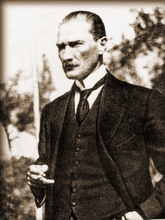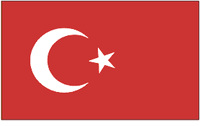At the time of Mustafa Kemal's arrival in Sofia, the Bulgarians "had been generally regarded as among the most backward of the sultan's subjects." [page 130 of Mango's biography] Yet something happened to transform them, which "amazed the Turks". Mango reports that this transformation has been attributed to the work of "'popular enlighteners'—nationalist teachers who imparted new learning as they went out to the people in the spirit of the Russian narodniks (populists)."
Mango reports that the Bulgarian transformation made a deep impression on Mustafa Kemal, "who was later to adopt populism (halkçılık) as one of the six basic principles of the Turkish republic."
I'm not familiar with populism as an explicit idea. The Wikipedia link defines it as "a discourse which supports 'the people' versus 'the elites'." In the post-serf era in which the Narodniks were born, that definition is understandable. How exactly does that term applies to the Turkish context? I look forward to learning.
In the meantime, what's important here is the impression his Sofia experience made on him and its eventual impact on Turkey.
Wednesday, May 14, 2008
Subscribe to:
Post Comments (Atom)


No comments:
Post a Comment